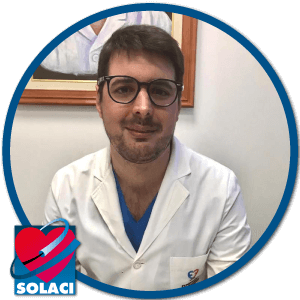Transcatheter aortic valve replacement (TAVR) is a therapeutical option for patients with symptomatic severe aortic stenosis. Current guidelines recommend TAVR in patients ≥75 years with intermediate risk. One of the most frequent complications of this procedure is moderate or greater aortic regurgitation (AR) after implantation. Consequently, new valves have been developed to try and reduce the incidence of this complication.

The target of this observational, retrospective, multicenter study was evaluating the safety and efficacy of the ACURATE Neo2 valve in the real world, comparing short-term clinical and hemodynamic outcomes in patients treated with first-generation ACURATE Neo.
The primary endpoint (PEP) was moderate of greater AR as measured by echocardiogram. The secondary endpoint (SEP) was technical success of the procedure, and efficacy and safety of the device at 90 days.
This study included 900 patients; 220 had the ACURATE Neo2 valve implanted, and 680 received a first-generation ACURATE Neo device. Mean patient age was 83 years old, and most subjects were female. The Society of Thoracic Surgeons (STS) score was 3.6, and about 9% of patients had a prior permanent pacemaker implanted.
Patients in the ACURATE Neo2 arm experienced grade 1 atrioventricular block and complete right bundle branch block more frequently than patients in the other group. In terms of the procedure, access was transfemoral in all cases; in the ACURATE Neo2 group, pre-dilation was significantly more used, while post-dilation was more frequent in the other arm.
Read also: Bad prognosis for post-MitraClip mitral valve stenosis: how do we proceed?
The post-procedure success rate was similar in both arms, with no differences in in-hospital major adverse events. There was a decrease in the frequency of moderate or greater AR with the use of ACURATE Neo2 compared with first-generation ACURATE Neo (11.2% vs. 3.5%; p < 0.001).
Conclusion
Compared with the first-generation device, the new-generation ACURATE Neo2 was associated with a significantly lower frequency of moderate or severe paravalvular AR. Despite the encouraging results of this new-generation ACCURATE device, further randomized and long-term studies are needed to support these results.

Dr. Andrés Rodríguez
Member of the Editorial Board of SOLACI.org.
Original Title: Transcatheter Aortic Valve Replacement With Self-Expanding ACCURATE neo2 Postprocedural Hemodynamic and Short-Term Clinical Outcomes.
Reference: Andrea Buono, MD et al J Am Coll Cardiol Intv 2022.
Subscribe to our weekly newsletter
Get the latest scientific articles on interventional cardiology





